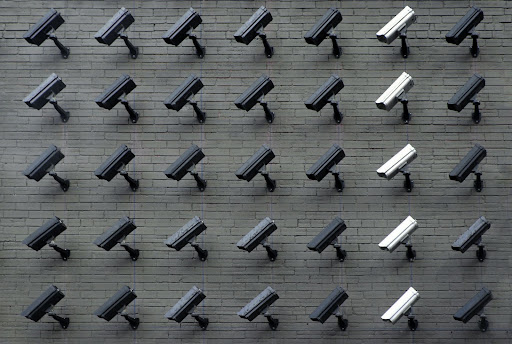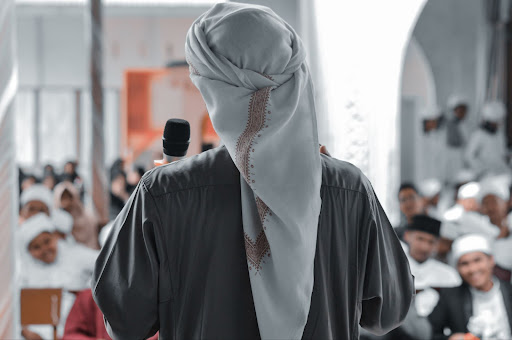
The US Supreme Court of California recently began hearing a case involving the claims of three Muslim men who are suing the FBI for illegally surveilling Muslim community. Yassir Fazaga, a former imam at the Orange County Islamic Foundation, along with Ali Uddin Malik and Yasser AbdelRahim, both members of the Islamic Center of Irvine, say the FBI targeted members of Muslim communities based on their religion. The FBI has acknowledged running a surveillance program at several California mosques, but maintains the surveillance program was legal and carried out for reasons not having anything to do with religion. During the initial trial, the district court agreed some classified and secret evidence could not be heard in court. The US Supreme Court has now agreed to hear the case again, as well as decide if district courts should be able to use classified evidence when determining if secret government surveillance is lawful.
When did the FBI Conduct Surveillance Illegally?
The civil rights group representing the three men who are suing the FBI, ACLU, says it all began in Orange County, California during 2006 when an FBI informant started illegally surveilling prayer groups and making videos in mosques, homes and businesses. The FBI says the surveillance program began after a “home-grown” terrorist on the most-wanted list had been seen coming out of a mosque there. At the time, relations between Muslims and the FBI had become tense, so the head of the Los Angeles FBI office held a town hall at the Islamic Center of Irvine to assure the audience the FBI was not surveilling them in any way. “If the bureau is going to come to the mosque,” he told the Muslim community, “We will tell you we’re coming for the very reason we don’t want you to think you’re being monitored.” At the same time, the FBI was recruiting and training undercover informant, Craig Monteilh, to help catch anyone recruiting and training terrorists. As Sam Black reported for This American Life, “The FBI later confirmed in court that Craig was an undercover informant. A district attorney also stated in court that Craig did work with Agent Kevin Armstrong and that Craig had given the FBI ‘very very valuable information.'” The FBI informant recorded conversations and discussions, as well as took photos of license plates and people who were coming to the mosque. Many members of the Muslim community claim the FBI informant was “literally instigating, enticing people, trying to get them to become terrorists.”

FBI Illegal Surveillance Informant turned Terrorist?
Fazada, who is a therapist, is angry he found a recording device in his office left there by the FBI informant. The device recorded the personal and confidential sessions he had with his patients for over a month. Craig Monteilh testified that his FBI handlers considered Fazada to be a radical because he “directed students on how to conduct demonstrations and encouraged them to speak out.” Fazada wants the FBI to destroy all the information that was gathered, especially recordings of counseling sessions. “You couldn’t go into a Catholic church in the confession room and put bugs there because that would just be a violation of these people’s rights and their religious freedom,” he said. “That applies to people in therapy as well. It applies to people in a mosque, a synagogue, a church, any place of worship.” In addition to acts such as this, the FBI informant began asking many questions about jihad, and suggesting members of the Muslim community carry out terrorist attacks. The FBI informant confirmed making the suggestions. “I said we should carry out a terrorist attack in this country. We should bomb something.” Upon hearing this two of the men he’d been hanging out with, freaked out and contacted the director of the Council on American Islamic Relations in Southern California. ACLU lawyer, Ahilan Arulanantham, said the FBI informant “started, at his FBI handlers’ behalf, to try to incite violence, but he scared a bunch of people, when he was talking about things like bombing, Jihad and the war in Iraq and Afghanistan (and) they reported him to the FBI.” According to Sam Black, the FBI then started to investigate their own informant. The Muslim community now believes this was just another way to leverage people and get them to inform on each other. These events are why three of the people who were surveilled illegally, sued the FBI.
The FBI Being Sued for Illegal Surveillance
So far, none of the people or the places of worship have been implicated in any public criminal activity or federal charges. When the men sued the FBI for illegal surveillance in 2011, the agency invoked state secrets privilege to block the lawsuit in order to prevent disclosure of evidence that could threaten national security. The state secrets privilege hides information when the government believes “there is a reasonable danger that compulsion of the evidence will expose military [or other] matters which, in the interest of national security, should not be divulged,” it says in court documents. A federal district court agreed with the FBI orignally, but a panel of judges reversed that decision on appeal in favor of the Muslim men. The appeals court said the Foreign Intelligence Surveillance Act (FISA) of 1978 allows a judge to evaluate secret evidence and determine whether the government can keep some or all of it secret. The men’s lawyers claim, in a case like this FISA displaces the “state secrets privilege,” created by the Supreme Court in the 1950s. The FBI counters that FISA was not meant for cases like this and courts must dismiss the case if the government certifies a threat to national security. Here the government has made that certification, contending that this case cannot be litigated “without risking disclosure of state secrets.” In its brief to the court, the FBI said that it “does not lightly” invoke the state secrets privilege and the Attorney General has personally approved the assertion.
Fazada is not buying that argument. “There is no one to see the merits of what you (The FBI) are doing. And national security just becomes this blanket that you can cover anything you want with it.” The Biden administration has defended the FBI saying, “the Executive Branch has the critical responsibility to protect the national security of the United States. State-secrets privilege helps enable the Executive to meet that constitutional duty.” Do you believe the FBI illegally surveilled the Muslim community? Do you believe the men suing the FBI are justified? The Supreme Court is expected to hand down a decision in the case by the end of June 2022.
Written by: Erinn Malloy

